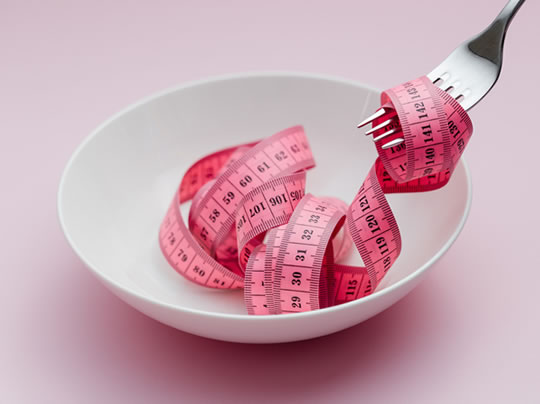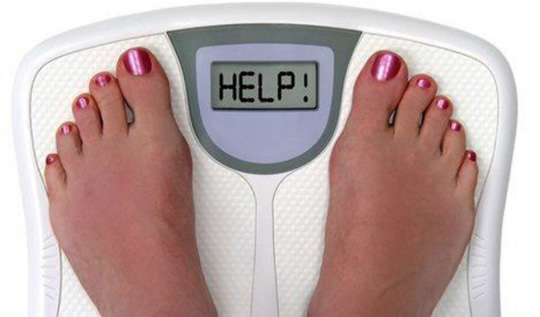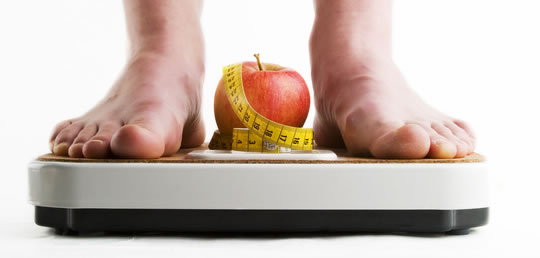Some of these tips on weight loss and comfort food, exercise, the emotions and more might surprise you.
1. Look at loads of pictures of food
It’s the most unlikely weight-loss trick ever: looking at endless pictures of foods can make them less enjoyable to eat, a recent study has found.
While a few photos might enhance the appetite, contrary to what you’d expect, people are actually put off the taste by looking at loads of pictures of food.
Professor Ryan Elder, who led the study, which is published in the Journal of Consumer Psychology, said:
“In a way, you’re becoming tired of that taste without even eating the food.
It’s sensory boredom — you’ve kind of moved on. You don’t want that taste experience any more.”
2. Play Tetris (or similar)
Just three minutes of playing Tetris can reduce cravings for food, cigarettes and alcohol, according to a new study published in the journal Appetite.
The psychologists conclude that Tetris, a retro tile-matching puzzle game, may provide a visual distraction which helps people control their cravings.
One of the study’s authors, Professors Jackie Andrade, explained:
“Episodes of craving normally only last a few minutes, during which time an individual is visualising what they want and the reward it will bring.
Often those feelings result in the person giving in and consuming the very thing they are trying to resist.
But by playing Tetris, just in short bursts, you are preventing your brain creating those enticing images and without them the craving fades.”
Candy Crush will probably do the same job.
3. Stop ‘exercising’, start having fun!
A strange thing happens when people start exercising to lose weight.
Despite burning more calories, they frequently fail to shed the pounds.
One reason people give is that they start eating more.
But, a new study finds, when exercising just for fun, people don’t eat so much afterwards.
The reason for this difference seems to be in how framing exercise affects people’s search for rewards:
“Engaging in a physical activity seems to trigger the search for reward when individuals perceive it as exercise but not when they perceive it as fun.”.
So the best advice is: stop ‘exercising’ and go out and have fun.
4. Comfort food doesn’t comfort you
Contrary to what most people believe, comfort food does not improve a low mood, a new study has found.
The research, published in the journal Health Psychology, found that people who ate nothing recovered from a bad mood just as quickly as those who ate their preferred comfort food.
The researchers concluded:
“We found no justification for people to choose comfort foods when they are distressed.
Removing an excuse for eating a high-calorie or high-fat food may help people develop and maintain healthier eating habits, and may lead them to focus on other, food-free methods of improving their mood.
You don’t need comfort food to feel better; the mind will do the trick all on its own if you give it time.”
5. A protein-rich breakfast reduces food cravings
New research shows that eating a good breakfast — particularly one rich in protein — boosts a critical neurotransmitter, which may lower food cravings later in the day.
Dr. Heather Leidy, an assistant professor of nutrition and exercise physiology who led the study, said:
“Our research showed that people experience a dramatic decline in cravings for sweet foods when they eat breakfast.
However, breakfasts that are high in protein also reduced cravings for savory — or high-fat — foods.
On the other hand, if breakfast is skipped, these cravings continue to rise throughout the day.”
6. Why sleep deprivation leads to junk food craving
Recent research from UC Berkeley scanned the brains of 24 participants after both a good, and a bad night’s sleep.
After disturbed sleep, there was increased activity in the depths of the brain, which is generally associated with rewards and automatic behaviour.
The frontal lobes, just behind and above the eyes, which help provide self-control, were less active.
The finding may help explain why the sleep-deprived are more likely to give in to calorific temptations.
One of the study’s authors, Matthew Walker, explained:
“”What we have discovered is that high-level brain regions required for complex judgments and decisions become blunted by a lack of sleep, while more primal brain structures that control motivation and desire are amplified.”
7. Diets make you less happy overall
A new study of almost 2,000 overweight and obese adults in the UK has found that those who lost weight were unhappier than those who remained within 5% of their original weight.
Although they were physically healthier four years later — with lower blood pressure and reduced risk of heart disease — those who lost weight were likely to be less happy.
Dr. Sarah Jackson, the study’s lead author, pointed out that the reason may be that diets tend to make you miserable:
“Resisting the ever-present temptations of unhealthy food in modern society takes a mental toll, as it requires considerable willpower and may involve missing out on some enjoyable activities.
Anyone who has ever been on a diet would understand how this could affect well-being.”
8. Pay attention to your emotions
Learning to pay attention to your emotions is a more powerful weight-loss strategy than greater nutritional knowledge, a new study finds.
A group of people were given a nutritional knowledge course and they were taught to recognise basic emotions in both themselves and other people.
At the end of the training session participants were asked to choose a snack.
Those who had had the emotion training were more likely to choose the healthier option.
The study’s authors concluded:
“With a better understanding of how they feel and how to use emotions to make better decisions, people will not only eat better, they will also likely be happier and healthier because they relate better to others and are more concerned with their overall well-being.”
Image credit: Ryan Wiedmaier








